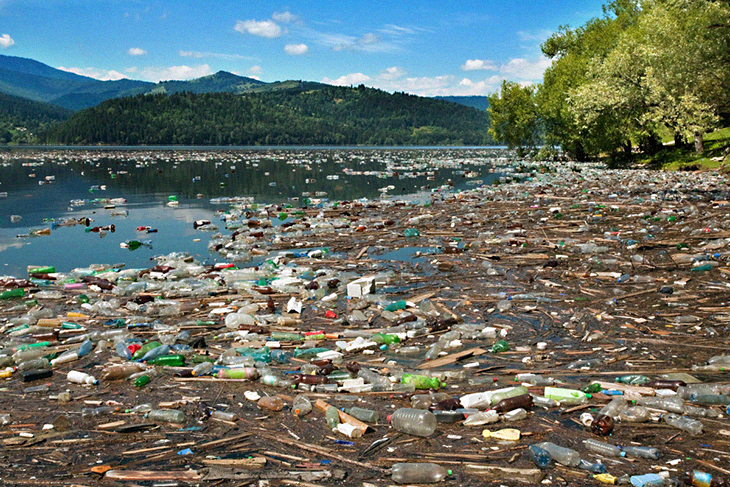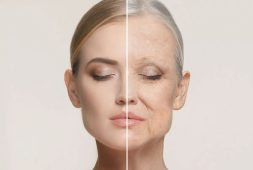How Does Water Pollution Affect Humans, Marine Life And The Environment And What Can We Do To Prevent It?

When a body of water gets contaminated by chemicals or other microorganisms, water pollution happens which makes it toxic for humans and the environment to intake.
Water is one of the most important resource for all living beings on earth, along with the sun and oxygen. When a body of water gets contaminated because of pollution, it will leaded to complications in humans like cancer or cardiovascular diseases. This article will explain different causes of water pollution, how it affects human health, and what we can do in order to prevent it.
Clean water gives life to all living creatures and is also an important part in manufacturing, and social and economical development. Unfortunately, the United Nations (UN) estimated that about 2.2. billion people do not have access to safe drinking water.
The UN and World Health Organization (WHO) came out with statistics on water pollution below:
1] More than half of the global population don not have any form of sanitation services managed by a department.
2] 2.2 billion people live in countries that experience high levels of water stress, which means the water available is less than the amount needed for all its residents.
3] By 2025, experts have estimated 50% of the world’s population to be living in a water-stressed environment.
4] About 785 million people don’t have the luxury of having basic drinking water services.
5] Water pollution has become worse in almost all rivers located in Asia, Latin America and Africa since the 1990s.
What are the sources of water pollution?
Water is known to be a universal solvent because it can dissolve almost all substances than any other liquid. This is unfortunate because that means that it is prone to pollution.
Here are different ways on how water pollution happens:
1] Sewage and wastewater – Once the water is used, it becomes wastewater. This can be water coming from sinks, toilets, or showers in a domestic household, or water from agricultural, industrial and commercial use. Wastewater can also be rainwater that has washed away oil and grease, chemicals or debris from the ground and into the waterways. The UN has estimated that 80% of wastewater is returned to the ecosystem without proper treatment.
In 2017, the UN took note that 2 billion people around the world did not even have basic access to bathrooms, which means that about 673 million people openly defecate outside.
2] Agriculture – The agriculture industry is one of the biggest industries that have the need of using fresh water. In the U.S. alone, 80% of the country’s water consumption is used for agriculture. It is also the main source of river and stream pollution. One way for this industry to cause pollution is through rainwater. When it rains, all fertilizers, animal waste and pesticides get washed away from farms into waterways which contaminates fresh water.
3] Garbage and plastics – An approximation of 1.4 billion tons of waste is produced every year. 10% of this annual waste is comprised of plastic. Because plastics are still widely used, experts said that about 10 million tons of waste end up in the ocean each year. This harms marine life, and in turn, human health. Fish can eat this waste mistaking it for food and dying from the pollutants it contains.
When plastic eventually breaks into smaller pieces, microplastics will form. Fish can eat these fragments of about 5mm in size, which will end up being eaten by humans.
According to the UN, plastic debris is also the reason for the deaths of over 1 million seabirds and 100.000 marine mammals annually.
4] Radioactive waste – This type of waste can stay in the environment for thousands of years make its disposal very difficult. When it is wrongly disposed of, it can enter a water source which makes it hazardous to humans, marine life, and the environment as well.
5] Fracking – this is the process of extracting oil or gas from rocks. This technique needs a lot of water and chemicals in order to crack the rock from extreme pressure. The combination of water and chemicals can pollute underground fresh water.
How water pollution affects human health:
1] Ingesting microplastics – Microplastics can get ingested when drinking water or eating seafood that has been contaminated. Preliminary studies have shown that ingesting microplastics can cause inflammatory reactions, oxidative stress and metabolic disorders.
2] Consuming contaminated water – The WHO says that there are about 2 billion people globally that are drinking from a water source with fecal contaminants. Contaminated water can have bacteria that is responsible for sicknesses like diarrhea, cholera, dysentery, typhoid, hepatitis A and polio. According to the UN, around 297,000 children under the age of five die from diseases related to unsafe drinking water, poor hygiene and sanitation annually.
3] Drinking water with chemical waste – Chemical waste like fertilizers, pesticides and heavy metals will cause serious health problems if they are ingested. Someone that ingests these toxins can be at risk of the following:
Damage to immune and reproductive systems
Cancer
Altered brain function
Hormone disruption
Cardiovascular and kidney problems
How you can prevent water pollution:
1] Reduce plastic usage and recycle all plastics
2] Maintenance upkeep of vehicles so that it is not leaking harmful substances
3] Do not use pesticides
4] Dispose of household chemicals in the right bins
5] Make better choices with food and drinks
6] Clean up dog waste and dispose of properly
7] Reduce meat consumption



